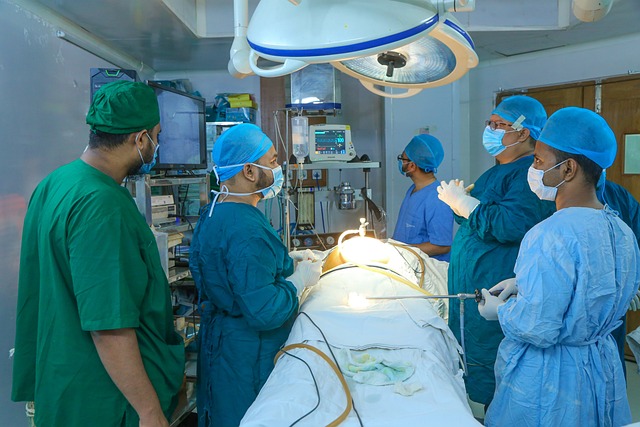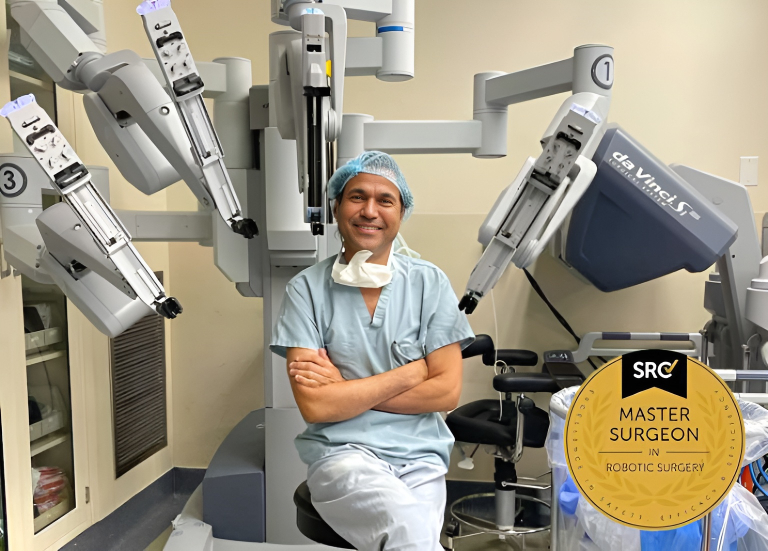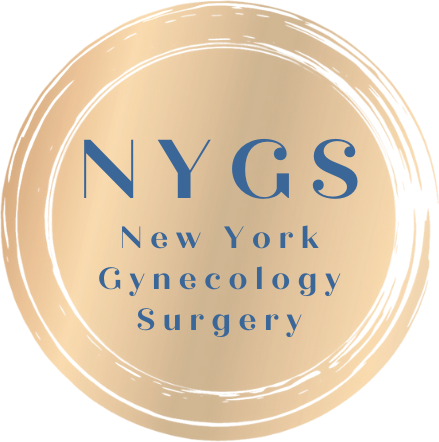Laparoscopy
What is Laparoscopy?
Laparoscopy, also known as diagnostic laparoscopy or keyhole surgery, is a minimally invasive surgical technique that is used to diagnose and treat a variety of conditions in the abdomen and pelvis.
During a laparoscopy, a surgeon makes several small incisions in the abdomen and inserts a thin, flexible tube called a laparoscope. The laparoscope contains a camera and a light source, which allow the surgeon to see the inside of the abdomen on a video monitor. The surgeon can also insert other surgical instruments through the incisions to perform procedures such as removing a damaged organ or taking a biopsy.
Laparoscopy is often used to diagnose and treat conditions such as endometriosis, ovarian cysts, ectopic pregnancy, fibroids, and certain types of cancer. Because it is less invasive than traditional surgery, laparoscopy can result in less pain and scarring, shorter recovery times, and a reduced risk of complications.

What are the Benefits of Laparoscopy?
Laparoscopy offers several advantages over traditional open surgery, including:
- Less invasive: Laparoscopy requires only small incisions, compared to the larger incision required for open surgery. This results in less trauma to the body, less pain, and less scarring.
- Faster recovery time: Because laparoscopy is less invasive, the recovery time is generally shorter than for open surgery. Patients are typically able to return to their normal activities more quickly.
- Reduced risk of complications: Because laparoscopy is less invasive, there is less risk of complications such as bleeding, infection, and other surgical complications.
- Improved accuracy and visualization: Laparoscopy provides the surgeon with a magnified view of the surgical site, allowing for more accurate and precise surgical procedures.
- Reduced hospital stay: Laparoscopy is often performed on an outpatient basis, meaning that patients can go home on the same day as the surgery. Even when an overnight hospital stay is required, it is typically shorter than for open surgery.
- Reduced costs: Laparoscopy may be less expensive than open surgery due to the reduced hospital stay, reduced need for pain medication, and faster recovery time.
Overall, laparoscopy is a safe and effective alternative to traditional open surgery for many procedures. However, not all procedures can be performed laparoscopically, and the suitability of laparoscopy for a given patient and procedure should be determined by a qualified surgeon.
How Safe is Laparoscopy?
Laparoscopy is generally considered a safe and effective surgical technique. It offers several advantages, including smaller incisions, reduced blood loss, shorter hospital stays, faster recovery times, and lower post-operative pain compared to traditional open surgery. The minimally invasive nature of laparoscopy typically results in less tissue trauma and scarring, contributing to a generally quicker return to normal activities. However, like any surgical procedure, there are potential risks, such as the small possibility of organ injury, infection, bleeding, and anesthesia-related complications. These risks are generally lower than with open surgery, but they still exist.
Overall, the safety of laparoscopy depends on the expertise of the surgical team, the patient’s health, and the specific procedure being performed. Patients should thoroughly discuss the potential risks and benefits with their healthcare provider before undergoing laparoscopic surgery.
How Much Does Laparoscopy Cost?
The cost of laparoscopy can vary widely depending on a number of factors, including the location of the procedure, the specific type of laparoscopy being performed, and the individual patient’s health insurance coverage. Without knowing these details, it’s difficult to provide an accurate estimate of the cost.
In general, however, the cost of a laparoscopy in the United States can range from several thousand dollars to tens of thousands of dollars, depending on the factors mentioned above. According to a 2020 report by the Healthcare Bluebook, the average cost of a laparoscopy in the United States was $7,840, with a range of $2,250 to $25,500.
In New York, the cost of laparoscopy can also vary widely depending on the same factors. According to data from the New York State Department of Health, the average cost of a laparoscopy in New York State in 2019 was $17,392, but this figure may not accurately reflect the cost of a specific procedure in a specific location.
It’s important to note that many health insurance plans cover laparoscopy, but the out-of-pocket cost for the patient may still vary depending on the specifics of the plan. It’s always a good idea to check with your insurance provider to understand your coverage and any potential costs you may be responsible for.
Laparoscopy in Gynecology and Cancer Treatment
Laparoscopy is commonly used in gynecology and cancer treatment for both diagnostic and therapeutic purposes. Here are some examples:
- Gynecology: Laparoscopy is often used to diagnose and treat conditions such as endometriosis, ovarian cysts, uterine fibroids, and infertility. During a laparoscopy, the surgeon can visualize the pelvic organs, take biopsies, and remove or treat any abnormalities. Laparoscopic hysterectomy (removal of the uterus) and oophorectomy (removal of the ovaries) are also common procedures performed in gynecology.
- Cancer treatment: Laparoscopy is increasingly used in the diagnosis and staging of various cancers, including gastrointestinal, gynecologic, and urologic cancers. For example, laparoscopic lymph node dissection is a minimally invasive procedure used in the staging of some types of cancer. Laparoscopy may also be used in the treatment of certain cancers, such as ovarian cancer. In some cases, laparoscopy may be used to remove cancerous tissue or perform other types of cancer surgery.
In both gynecology and cancer treatment, laparoscopy is generally associated with less pain, shorter hospital stays, and faster recovery times compared to open surgery. However, not all patients or conditions are suitable for laparoscopy, and the suitability of laparoscopy for a given patient and procedure should be determined by a qualified surgeon.
Pankaj Singhal, MD, MS, MHCM
- Industry expertise with over 12 years of experience in both academic & private health care settings, physician practice management and executive leadership.
- Trained over 45 gynecologic surgeons along with training fellows in minimally invasive gynecologic surgery and gynecology oncology, and has developed cutting edge, new surgical techniques for endometriosis and laparoscopic surgeries.
- One of the very few surgeons who have completed over 5,718 robot-assisted gynecologic surgeries in the entire United States.
- Known for taking on the most challenging surgery cases that other doctors/centers turn away.

Hear From Our Clients

Joetta Simonette
On May 3, 2018 at Good Samarital Hospital, due to cancer, you performed ovarian surgery on me.
It is now 5 years since that date – 5 years of wellness that has been accomplished through the grace of God guiding your hands and the support of your team and my loving family.
You are an excellent, compassionate and caring doctor who was confident of a good outcome, and so it is!
Thank you, thank you for these past wonderful years. May God continue to bless you. You are in my prayers!

RG Petkos
Power couple Dr. Singhal & Dr. Mclean are amazing!! My experience with them has been absolutely wonderful. I highly recommend either of them for so many reasons mainly for helping me get back some quality of life with my successful full hysterectomy being better than I expected.
The process from the beginning with them was a pleasure and I had quite a challenge beforehand so I’m very grateful that quality, professional, caring doctors still exist!!
I especially appreciate their proactive approach and feel the combination of the care and expertise they provide make for successful outcomes!!

Kimberly Quinde
Dr. Singhal was the doctor who took care of my mother Ivonne Guevara. My mother had gone to 2 other doctors who refused to take care of her fibroid. She was in pain for years and her fibroid had grown really big without her knowing. When my mom went to Dr Singhal she was met with calmness and reassurance that everything will be ok and he would help her get better. Dr. Singhal was so kind and caring all throughout the process.
He took all her worries away and my mom highly recommends him. She hopes every doctor can be as great as Dr. Singhal.
Everyone in his office was so nice to my mom and it was a great experience given the circumstances.
Hospital Affiliations



Request an Appointment
"*" indicates required fields
